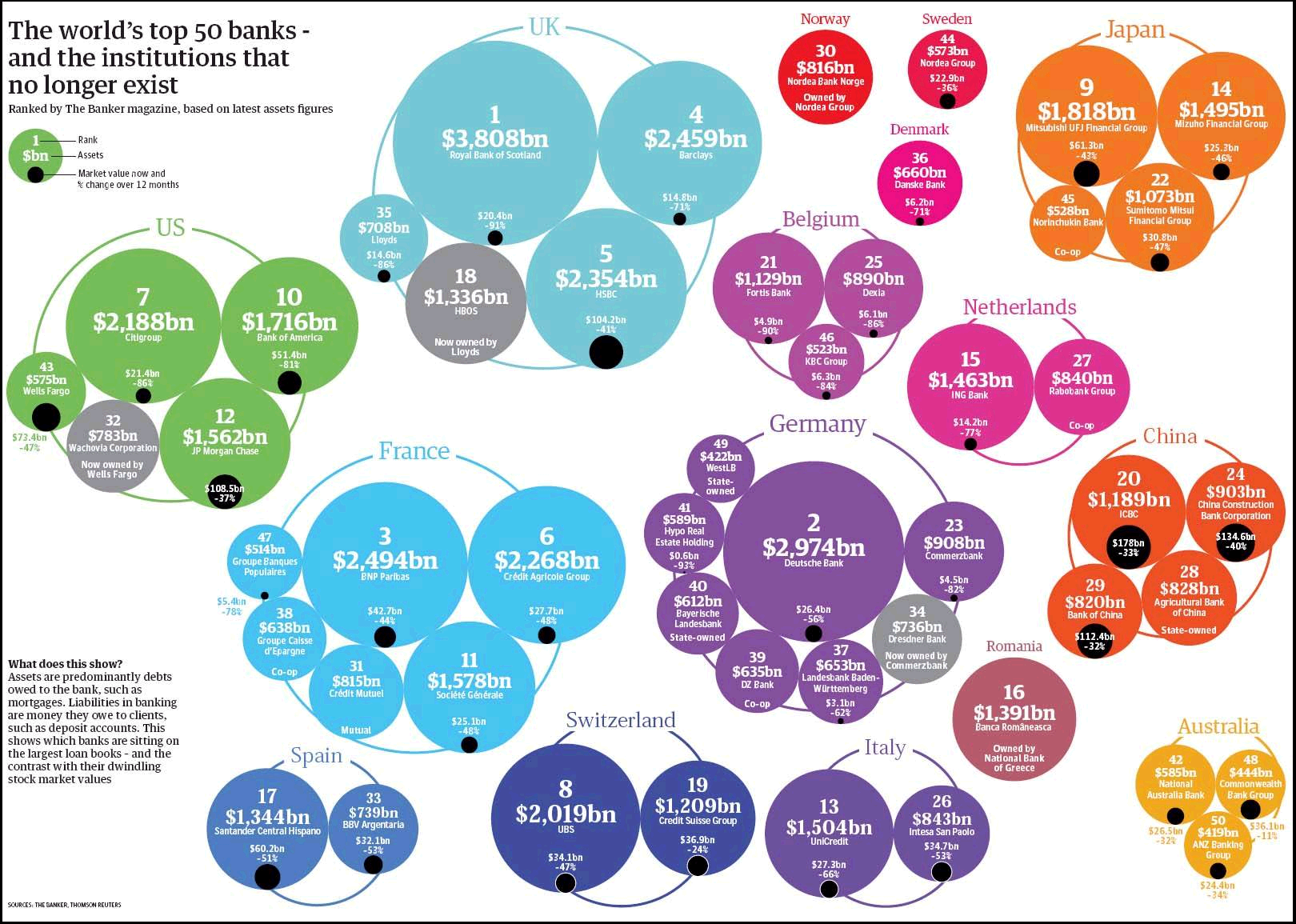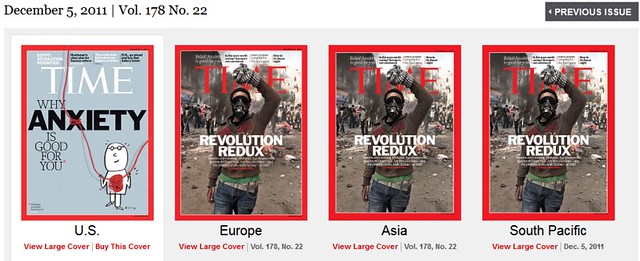Monday, August 19, 2013
remember: hunger is now "extremism/terrorism"
By
CNu
at
August 19, 2013
0
comments
![]()
Labels: clampdown , Collapse Casualties , The Hardline
ripping off young america...,
By
CNu
at
August 19, 2013
0
comments
![]()
Labels: Collapse Casualties , Obamamandian Imperative
stop playing, where's my gold at?
There are serious strains in the (gold) system. I’ve never witnessed such a serious strain in my lifetime in terms of the backwardation of gold, and in terms of the lease rates being negative for such an extended period of time. This suggests that there are two forces at work: One is that there are serious strains in the system — that the bullion banks are struggling to come up with the physical gold for spot delivery that the market demands.
By
CNu
at
August 19, 2013
0
comments
![]()
Labels: banksterism , Collapse Crime
Sunday, August 18, 2013
egypt a tissue of lies...,
By
CNu
at
August 18, 2013
0
comments
![]()
Labels: Livestock Management , The Great Game
feds threaten to arrest lavabit founder for shutting service down...,
... a source familiar with the matter told NBC News that James Trump, a senior litigation counsel in the U.S. attorney’s office in Alexandria, Va., sent an email to Levison's lawyer last Thursday – the day Lavabit was shuttered -- stating that Levison may have "violated the court order," a statement that was interpreted as a possible threat to charge Levison with contempt of court.That same article suggests that the decision to shut down Lavabit was over something much bigger than just looking at one individual's information -- since it appears that Lavabit has cooperated in the past on such cases. Instead, the suggestion now is that the government was seeking a tap on all accounts:
Levison stressed that he has complied with "upwards of two dozen court orders" for information in the past that were targeted at "specific users" and that "I never had a problem with that." But without disclosing details, he suggested that the order he received more recently was markedly different, requiring him to cooperate in broadly based surveillance that would scoop up information about all the users of his service. He likened the demands to a requirement to install a tap on his telephone.It sounds like the feds were asking for a full on backdoor on the system, not unlike some previous reports of ISPs who have received surprise visits from the NSA.
By
CNu
at
August 18, 2013
2
comments
![]()
Labels: The Hardline , unspeakable
Saturday, August 17, 2013
murdering the wretched of the earth...,
By
CNu
at
August 17, 2013
0
comments
![]()
Labels: clampdown , Collapse Casualties , global system of 1% supremacy
still at it...,
By
CNu
at
August 17, 2013
0
comments
![]()
Labels: agenda , disinformation , elite , establishment , presstitution
Friday, August 16, 2013
we return to our regularly scheduled coverage of the all-seeing eye....,
The Obama administration referred all questions for this article to John DeLong, the NSA’s director of compliance, who answered questions freely in a 90-minute interview. DeLong and members of the NSA communications staff said he could be quoted “by name and title” on some of his answers after an unspecified internal review. The Post said it would not permit the editing of quotes. Two days later, White House and NSA spokesmen said that none of DeLong’s comments could be quoted on the record and sent instead a prepared statement in his name. The Post declines to accept the substitute language as quotations from DeLong. The statement is below.
We want people to report if they have made a mistake or even if they believe that an NSA activity is not consistent with the rules. NSA, like other regulated organizations, also has a “hotline” for people to report — and no adverse action or reprisal can be taken for the simple act of reporting. We take each report seriously, investigate the matter, address the issue, constantly look for trends, and address them as well — all as a part of NSA’s internal oversight and compliance efforts. What’s more, we keep our overseers informed through both immediate reporting and periodic reporting. Our internal privacy compliance program has more than 300 personnel assigned to it: a fourfold increase since 2009. They manage NSA’s rules, train personnel, develop and implement technical safeguards, and set up systems to continually monitor and guide NSA’s activities. We take this work very seriously.
By
CNu
at
August 16, 2013
0
comments
![]()
Labels: accountability , Ass Clownery , unspeakable , you used to be the man
because they can...,
By
CNu
at
August 16, 2013
0
comments
![]()
Labels: conspicuous consumption , food supply
Thursday, August 15, 2013
defcon 20 documentary
By
CNu
at
August 15, 2013
0
comments
![]()
Labels: count zero , What IT DO Shawty...
Wednesday, August 14, 2013
the all-seeing eye only wants to protect you...,
Logical outcomes from this?
1. FBI/NSA just shut down the #1 biggest hosting site and #1 most wanted person on Tor
2. Silkroad is next on their list, being the #2 most wanted (#1 was Child Porn, #2 is drugs)
3. Bitcoin and all crypto currenecies set to absolutely CRASH as a result since the feds can not completely control this currency as they please.
I don't always call the Feds agenda transparent, but when i do, I say they can be trying harder.
By
CNu
at
August 14, 2013
20
comments
![]()
Labels: agenda , banksterism , elite , establishment , global system of 1% supremacy , wikileaks wednesday
laura poitras: smiting the all-seeing eye
By
CNu
at
August 14, 2013
1 comments
![]()
Labels: wikileaks wednesday
sigurdur thordarson: greazy grima wormtongue serving the all seeing eye...,
By
CNu
at
August 14, 2013
0
comments
![]()
Labels: wikileaks wednesday
Tuesday, August 13, 2013
dr. sanjay gupta changed his mind...,
By
CNu
at
August 13, 2013
0
comments
![]()
Labels: People Centric Leadership , truth
An Oral History of the War on Drugs & The American Criminal Justice System
By
CNu
at
August 13, 2013
11
comments
![]()
Labels: American Original , Living Memory
cause the federal penitentaries are too crowded?
By
CNu
at
August 13, 2013
1 comments
![]()
Labels: American Original , Obamamandian Imperative
how has this been allowed to go on for so long?
By
CNu
at
August 13, 2013
0
comments
![]()
Labels: American Original , hegemony , Kwestin
Monday, August 12, 2013
has the gubmint lied about its snooping?
By
CNu
at
August 12, 2013
0
comments
![]()
Labels: unspeakable
feature, benefit, what exactly?
German security firm Protecus has found a setting in the fifth beta release of Apple's iOS 7 software called Feature Locations that tracks a user's GPS coordinates over time and plots them on a map.
This news comes after code was discovered in Google's Android 4.3 software that lets devices scan for nearby networks, in order to determine a person's location, even when Wi-Fi is turned off.
The Apple feature is relatively hidden away on the iOS 7 software - due to be released in October - in Settings, Privacy, Location Services, System Services and Frequent Locations.
It is unclear whether the feature is turned on by default but according to the Protecus security expert: '[The feature] kept track of my complete movement profile (location and time tracking) without me knowing anything.'
By
CNu
at
August 12, 2013
9
comments
![]()
Labels: tricknology
Sunday, August 11, 2013
9/11 in the academic community...,
By
CNu
at
August 11, 2013
1 comments
![]()
Saturday, August 10, 2013
Friday, August 09, 2013
quiet as it's kept, 1% sprang a leak too...,
By
CNu
at
August 09, 2013
0
comments
![]()
Labels: global system of 1% supremacy
nbc's pasty lester calls snowden "alleged american spy"
"While the cold war has been over for more than 20 years, the growing chill of late between Washington and Moscow became downright frosty today as President Obama called off his planned meeting with Russia's Vladimir Putin, a response to Russia's grant of asylum to accused American spy Edward Snowden..."
"While the cold war has been over for more than 20 years, the growing chill of late between Washington and Moscow became downright frosty today as President Obama called off his planned meeting with Russia's Vladimir Putin, a response to Russia's grant of asylum to admitted NSA leaker Edward Snowden..."
By
CNu
at
August 09, 2013
0
comments
![]()
Labels: agenda , elite , establishment , presstitution
two providers of secure email shutdown rather than submit...,
By
CNu
at
August 09, 2013
2
comments
![]()
Labels: micro-insurgencies , People Centric Leadership , What IT DO Shawty...
Thursday, August 08, 2013
a free man is a dangerous man at the end of the constitutional era...,
By
CNu
at
August 08, 2013
0
comments
![]()
Labels: agenda , count zero , elite , establishment
cyberattacks an unprecedented (and non-falsifiable) threat to u.s. national security...,
By
CNu
at
August 08, 2013
0
comments
![]()
Labels: agenda , elite , establishment , Obamamandian Imperative
6th Post Ever REDUX - Information and Biological Revolutions
It was this subtitle that really, really baked my noodle and sent me down the rabbit hole of spiraling cogitations and digital collaborations concerning the nature of things as they presently stand - and the shape of things to come.
Download it and read it in its entirety when you get a chance...,
By
CNu
at
August 08, 2013
0
comments
![]()
Labels: subrealist oeuvre...
Wednesday, August 07, 2013
enjoy the show and never become distracted...,
 |
| The Capitalist Network that Runs the World |
By
CNu
at
August 07, 2013
0
comments
![]()
Labels: banksterism , global system of 1% supremacy , unspeakable
The Tik Tok Ban Is Exclusively Intended To Censor And Control Information Available To You
Mises | HR 7521 , called the Protecting Americans from Foreign Adversary Controlled Applications Act, is a recent development in Americ...
-
theatlantic | The Ku Klux Klan, Ronald Reagan, and, for most of its history, the NRA all worked to control guns. The Founding Fathers...
-
Video - John Marco Allegro in an interview with Van Kooten & De Bie. TSMATC | Describing the growth of the mushroom ( boletos), P...
-
Farmer Scrub | We've just completed one full year of weighing and recording everything we harvest from the yard. I've uploaded a s...










